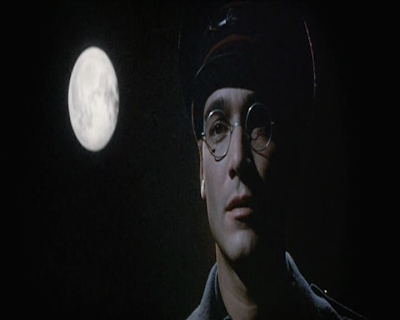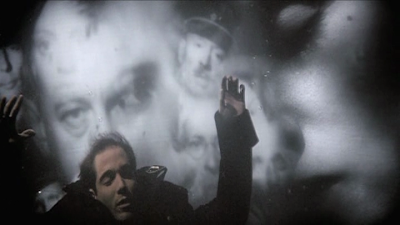A Potpourri of Vestiges Review
 |
| Europa (1991) - By Lars von Trier |
Our Rating: 9.5
IMDb Ratings: 7.6
Genre: Drama | War
Cast: Barbara Sukowa, Jean-Marc Barr, Udo Kier
Language: English | German
Runtime: 112 min
Color: Black and White | Color (Pathécolor)
Europa is a 1991 motion-picture directed and co-written by Danish auteur Lars von Trier. Europa, released as Zentropa in the US, is the third and final part of von Trier’s highly acclaimed Europe Trilogy—the other two being The Element of Crime (1984) and Epidemic (1987). Europa won several awards at the 1991 Cannes Film Festival including the Jury Prize but failed (to von Trier’s chagrin) to win the coveted Palme d’Or, which was awarded to Barton Fink. An expectant looking Lars von Trier gave the jury the finger before walking off the arena in high dudgeon. Renowned for his versatility and empirical outlook towards cinema, von Trier is undoubtedly the greatest filmmaker to have emerged out of Denmark since Carl Theodor Dreyer.
 |
| Jean-Marc Barr as Leopold Kessler in Lars von Trier's Europa |
 |
| Europa: Katharina Meets Leopold |
 |
| Leopold and Katharina Share an Intimate Moment |
 |
| A Still from Lars von Trier's Europa |
 |
| A Breathtaking View of a Train Passing Through a Tunnel |
 |
| An Optically Modified Sequence from Europa |
 |
| Lars von Tier (center) Makes a Brief Appearance in Europa |
 |
| Barbara Sukowa as Katharina Hartmann in Europa |
 |
| A Still from Europa |
 |
| A Still from Lars von Trier's Europa |
 |
| A Still from Europa: Leo and his Finicky Uncle |
Readers, please feel free to share your opinion by leaving your comments. As always your feedback is highly appreciated!
Note: The readers are encouraged to watch Europa back to back with The Element of Crime. The review of The Element of Crime can be read here
For more information on the title, please click on the following links:
People who liked this also liked...


Brilliant review as always :) I'm yet to watch this film which I'm sure I'll very soon. I think this is one of the foreign films I should add to the list of must-see foreign films.
ReplyDeleteThanks a ton, Hari! Btw, I assure you that you won't be disappointed :-)
ReplyDeleteNicely written article.
ReplyDeleteI am really glad that you liked it :-)
ReplyDeleteBrilliant review as usual. I have heard about this movie, but still haven't watched this trilogy.
ReplyDeleteThanks for showering your kindness as usual. As of now, I have only watched Europa but would be watching the others soon :-).
ReplyDeleteThere is so much to watch, where is the time. Excellent post :))
ReplyDeleteSo true... sometimes the feeling is just too overwhelming!!! Even after having watched a lot of them, I still feel just like reaching the tip of the iceberg!!! :-)
ReplyDeleteThe "subconscious of the protagonist", that's an interesting thought.
ReplyDeleteMax von Sydow's voiceover was a fascinating choice, and actually all three films in the Europa trilogy can be interpreted as hypnotic.
ps I think you mistyped, 9.5 IMDB rating(it is in fact 7.6). Otherwise excellent work!
Thanks a ton for bringing it up to my notice.... the mistake has been rectified. In Europa, Max von Sydow's voiceover was indeed of great impact, for it adds a whole new dimension to the movie. Btw, thanks for the recommendation :-)
ReplyDeleteMurtaza, your review is enticing me to see the film. Its got touches of surrealism and visual brilliance which seem like a stimulating watch thats makes you reflect on history and mankind. Your list of directors are most of my favourites too. Would love to share with you a blog post of mine of Bergman's scene analysis for the film "Persona". I was taken by its simple yet symbolic acting choreography.
ReplyDeletehttp://oorvazifilmeducation.wordpress.com/2012/09/26/persona-film-scene-choreography-by-oorvazi-irani/
Sharing your review on my FB page.
Thanks for sharing the link. Persona happens to be an all time favorite of mine which I am yet to decipher fully. I am certain that your article will help me gain a better insight into the film!!!
ReplyDelete